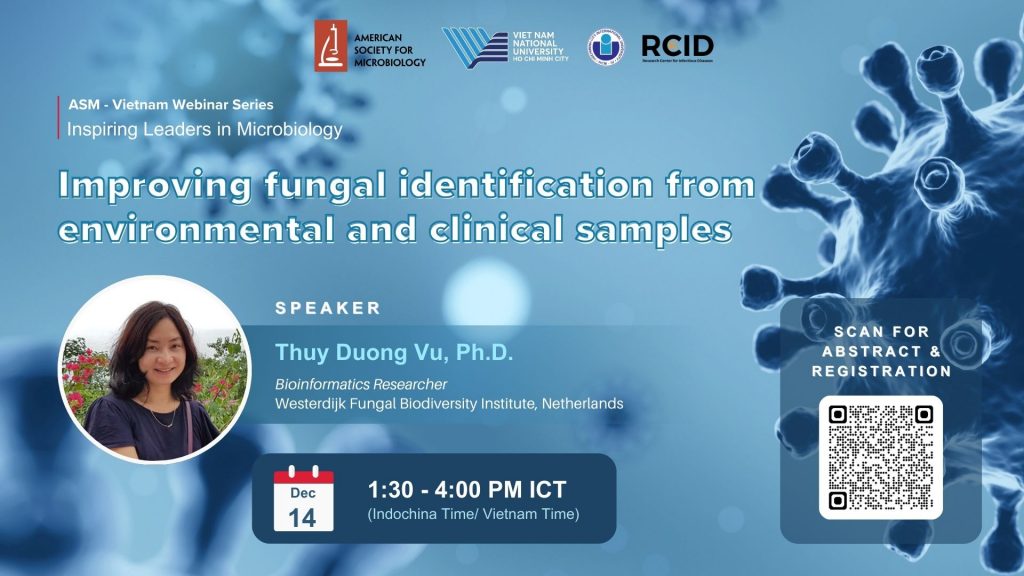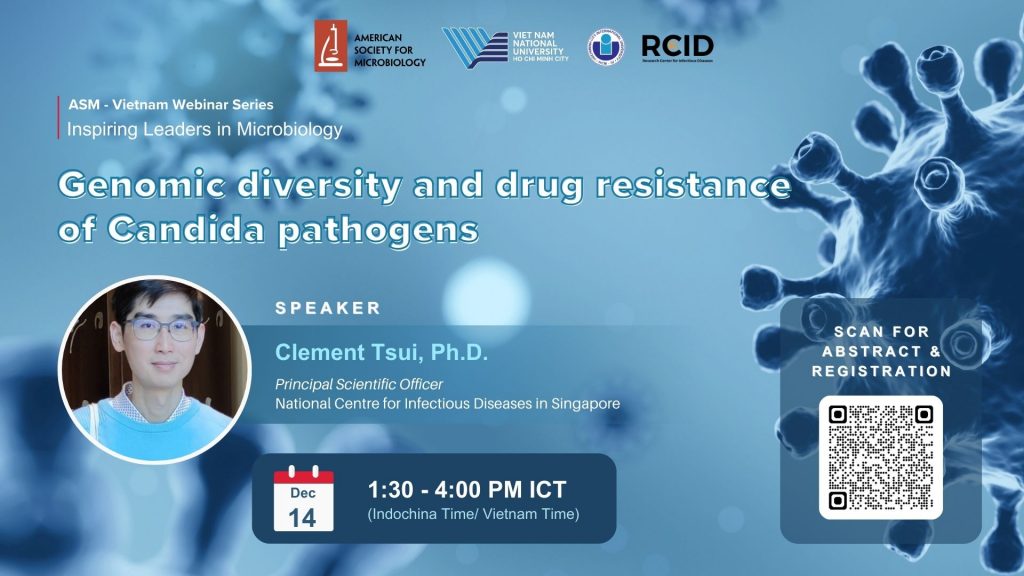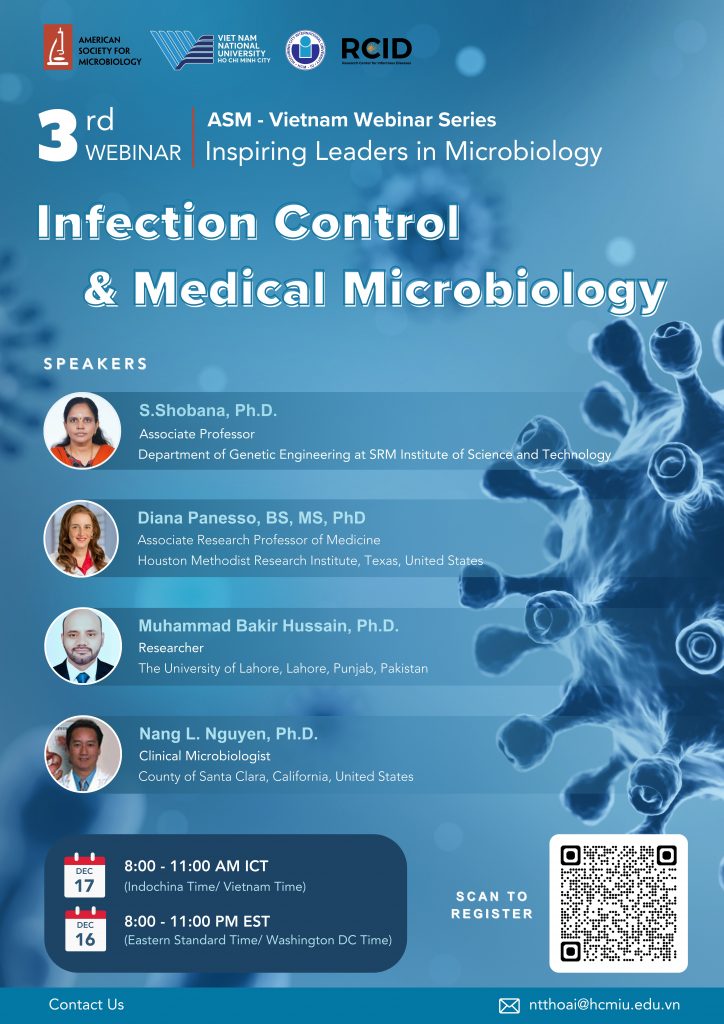The 3rd Webinar of ASM-Vietnam Webinar Series:
Pre-event and Main Event Registration
In alignment with the objectives of ASM network, the ASM-Vietnam Webinar Series was organized with the aim to foster the development of young Vietnamese microbiologists while also serving as a conduit for global outreach for ASM. Building on the success of the 1st and 2nd webinar, we invite you to the 3rd Webinar in the series with the topic: Infection Control and Medical Microbiology.
Pre-event Webinar
1. Improving fungal identification from environmental and clinical sample
Speaker: Dr. Thuy Duong Vu – Bioinformatics Researcher at Westerdijk Fungal Biodiversity Institute, Netherlands

Abstract
Fungi, with an estimated 2-6 million species, represent a vast and diverse group; yet, less than 5% of them have been described. They are essential for maintaining ecosystem health and stability, contributing to nutrient cycling, forming symbiotic relationships, facilitating decomposition, and supporting various other ecological processes. Some fungi are pathogenic and can cause severe diseases in plants, animals, and humans.
Accurate identification of fungi from environmental and clinical samples is crucial for understanding the causes and consequences of environmental changes and for developing appropriate treatments for fungal diseases. This process, however, can be challenging due to the lack of comprehensive reference data and the vast number of environmental samples being generated with the rapid development of sequencing technologies, which requires computational methods that can identify fungi quickly and accurately.
In my talk, I will present the fungal DNA barcode dataset generated at the Westerdijk Institute, which won the Dutch Data Prize in 2022 in the Life Sciences category for fungal identification. Additionally, I will discuss several computational methods, including AI techniques, that we have developed and applied to enhance fungal identification from environmental and clinical samples using DNA barcodes and whole fungal genomes.
2. Genomic diversity and drug resistance of Candida pathogens

Abstract
Invasive candidiasis poses a significant health concern, causing substantial morbidity among immunocompromised patients. There was increased incidence of Candida infections among patients with COVID-19 worldwide. This problem is complicated by the surge in antifungal resistance among many clinically relevant Candida spp., such as C. auris, C. glabrata, C. tropicalis, and C. parapsilosis. We have integrated whole genome sequencing (WGS) approach, population genomics analysis with conventional microbiological techniques to investigate the epidemiology, and antifungal resistance mechanisms in these pathogens in the Middle East regions. WGS data confirmed the clonal outbreak and ongoing dissemination of C. auris among various healthcare facilities in Qatar, particularly among COVID-19 patients. Similarly, WGS data revealed high genetic diversity in C. glabrata within the Qatari populations and identified signatures of recombination, inbreeding and clonal expansion within and between hospitals, including evidence for nosocomial transmission among COVID19 patients. Genome wide association studies also identified both known and novel genomic variants associated with reduced susceptibilities to fluconazole, 5-flucytosine, and amphotericin B in several isolates. In addition, we detected a clonal spread of fluconazole-resistant C. parapsilosis in Qatar, despite its variability. Understanding the genetic diversity, and epidemiology of Candida infections and antifungal resistance mechanisms is important to inform therapy and infection control strategy.
Main Event

1. Reinventing UTI Treatment: Phages as Targeted Solutions
Speaker: Dr. S.Shobana – Associate Professor at the Department of Genetic Engineering, SRM Institute of Science and Technology, Kattankulathur, India
2. Exploring Molecular Epidemiology and Genomic Insights in Enterococci
Speaker: Diana Panesso, BS, MS, PhD – Weill Cornell Medical College & Houston Methodist Research Institute
3. Infection Control; Waste Management
Speaker: Dr. Muhammad Bakir Hussain – University of Lahore, Pakistan
4. Laboratory Diagnosis of Bacteremia: Current State of the Art
Speaker: Dr. Nang L. Nguyen – Clinical Microbiology, Santa Clara County Health System, San Jose
